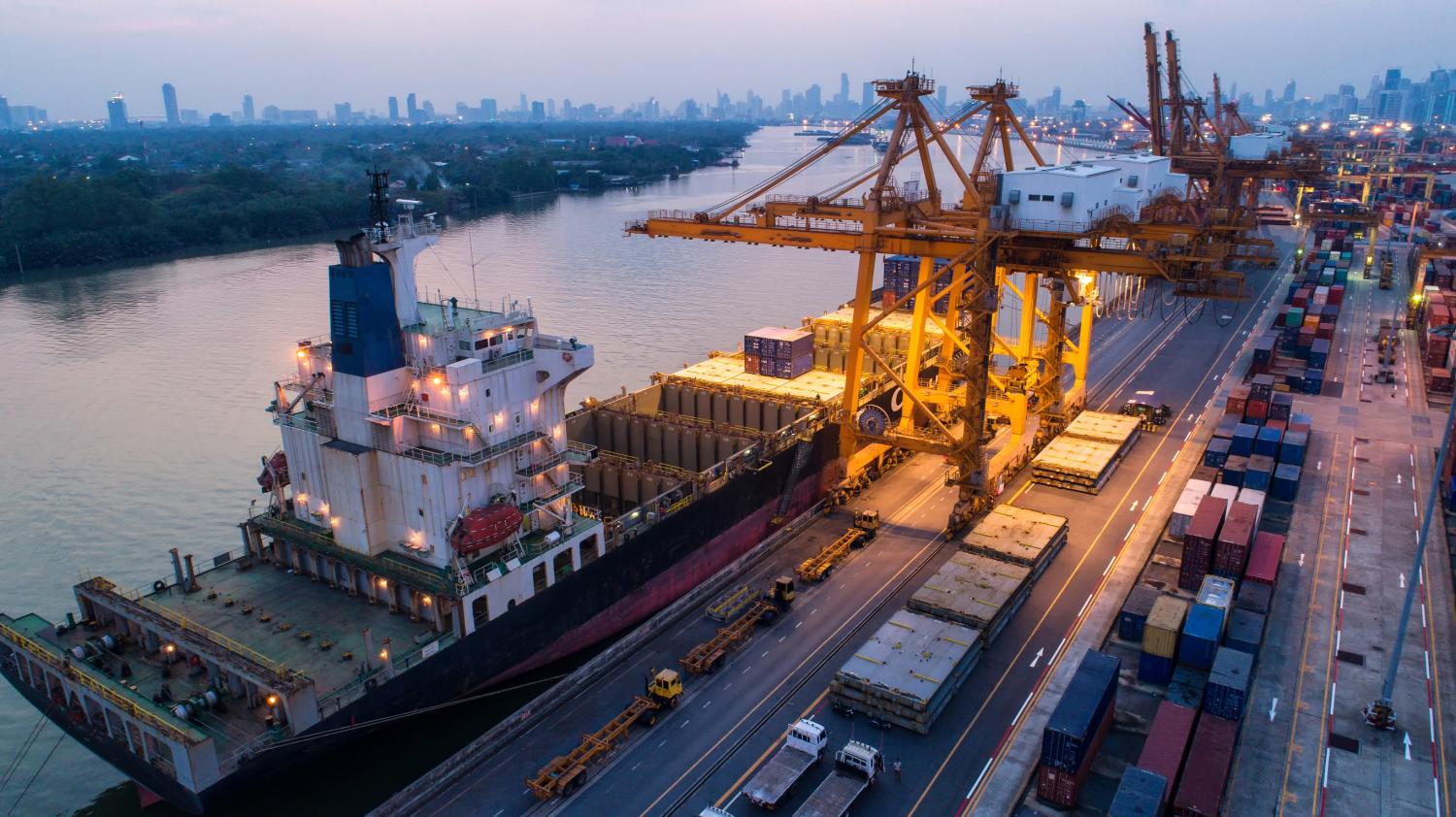FoxFury Lighting Solutions is a 16-year old family-owned company headquartered in the coastal, northern outskirts of San Diego. Founded to solve a particularly Californian problem — developing a specialized light to allow night surfing on crowded beaches — its mission has evolved to tackle larger global challenges. Today, FoxFury exports cutting-edge “Xtremium” headlamp products to China, Japan, and other countries around the world, helping fire and rescue officials respond to major global humanitarian disasters from earthquakes in Fukushima and Italy to hurricanes in Puerto Rico and Texas.
FoxFury’s shift from a domestically-focused company to a global exporter is an evolution that is still relatively uncommon among U.S. firms. Closing this gap has been an increasing focus for local economic development leaders in cities around the country, including in San Diego, where FoxFury accelerated its exporting activity through a grant competition and support program administered by the World Trade Center San Diego, an affiliate of San Diego Regional Economic Development Corporation (EDC).
Many of these efforts stem from the Global Cities Initiative, which made the case in the aftermath of the Great Recession that exports mattered because of the opportunity to diversify markets, strengthen firms and regional economies, and grow well-paying jobs. Local leaders, in turn, responded: economic development organizations across dozens of cities participating in GCI created new strategies to grow exports, mainstreaming global engagement into economic development in unprecedented ways. In metro areas ranging from Atlanta to Chicago, Indianapolis, Kansas City, Mo.- Kan., Phoenix, Salt Lake, San Antonio, St. Louis, and Wichita, Kan., this included developing grant programs to raise the profile and expand awareness of exporting. It also meant launching new export assistance resources and programs, centralizing, strengthening, and building on an existing ecosystem of trainings, guidance, and support long provided by the U.S. Commercial Service and a disparate array of other institutions.
But in the nearly decade since this work started, the narrative has become more complicated. Tariffs and trade wars have inserted instability into global markets. A stronger U.S. economy means greater domestic growth potential. And though exporting has real and substantial benefits for firms and regions, not every firm is ready to “go global.” The smartest local programs have evolved to reflect these realities, carefully building pipelines of suitable firms and offering tailored services and guidance, equipping companies to navigate these headwinds and grow and strengthen through global engagement.
Expanding the pipeline
San Diego’s MetroConnect program culminates each year with a flashy pitch competition, where firm participants try to outdo each other for $35,000 in prize money to support participation in trade shows, trainings, translation services, and other investments to help them expand globally.
But the real work starts months earlier.
Over the course of a year, roughly 15 companies selected via a competitive process receive $10,000 from the EDC, along with access to a slate of workshops and resources spanning topics like navigating intellectual property regulations and utilizing the Ex-Im Bank. A WTC San Diego project manager trained in exports assistance and compliance is on-call to help firms troubleshoot more specific problems. Companies also receive temporary membership in the EDC itself, connecting them to other local firms and regional initiatives.
Over four years, San Diego’s MetroConnect program evolved from a grant program seeking to raise the profile of exporting among area firms to a more sophisticated initiative combining funds with other support and targeting specific industries tied to the EDC’s broader economic development strategy.
For FoxFury, one of four finalists for the grand prize last year, these resources helped the company make crucial connections to dealers in Japan and Germany, establishing the firm as a potential partner in a business where leads and trust can often take years to build.
“We are a product development house. A lot of new products come out constantly. Making people aware of their existence is a problem, is a hurdle,” explained Mario Cugini, FoxFury’s CEO. “This process allowed us to get to the right person, get the right level of urgency, and the right level of support, and it’s been very, very valuable.”
Making strategic choices
In Louisville, Ky., where leaders developed one of the first city/regional level export grant programs, applicants were carefully screened to determine their readiness to export. Grant funding of $4,500 was also complemented with a package of other exports assistance, such as counseling, education about relevant export services, and introductions to other local service providers.
This evolution reflects the fact that it takes more than a passing interest in exports to succeed in complex global markets. International customs fines can quickly rack up, logistical issues are harder to troubleshoot, it can be easy to enter unfavorable terms with a foreign distributor, and a misstep in securing insurance on a shipment can turn into a loss in the hundreds of thousands of dollars.
“Some firms have good reasons for not exporting. As economic developers, it’s important that we do everything we can to discern which firms have the capacity and the will to develop as exporters.” said Jeanine Duncliffe, the director of international economic development at Louisville Metro Government, “Our job is to try to steward our limited resources toward the companies for which exporting represents, on balance, a positive and sustainable opportunity for growth. The grant’s competitive selection process helped us to accomplish that goal, particularly when firms were more risk-averse in the years following the recession.”
To identify applicants best positioned to succeed, Duncliffe developed a scorecard assessing criteria including past export performance, evidence of proactive interest in expanding to new markets, and signs that the firm’s product or service would be competitive in the global marketplace. Grant money was also split to support a larger track of existing exporters with some demonstrated success in global markets, while expanding the regional pipeline by taking chances on a smaller number of promising new exporters.
Building a broader ecosystem
Building internal capacity and developing a broader ecosystem to support exporting was also a lesson for Syracuse, N.Y., which centralized exports assistance for firms, enabling leaders to connect over a hundred companies a year to a carefully-cultivated “resource mountain,” including lawyers, insurance experts, regulatory authorities, and fellow exporters.
Recognizing that many firms didn’t have the same sophisticated capacity to navigate global markets as international trading partners, Syracuse also launched a program deploying exports consultants into firms to work hand-in-hand finding buyers, developing pricing strategies, designing compliance structurers, and building long-term knowledge to succeed at exporting.
Other resources and guidance from Syracuse’s Central New York International Business Alliance have helped firms troubleshoot legal and compliance issues, better understand foreign distribution channels, and identify the right global business partners. More broadly, according to Steven King, the executive director of the International Business Alliance, developing proactive –rather than reactive—approaches to trade has helped firms avoid potentially costly deals that were more a “kneejerk reaction to someone who has a checkbook,” than a good business opportunity for the company.
“What we give them is comfort that if they remain in contact with us and we come and meet with them and get updates from time to time, we’re there to hold their hand and save them from jumping off the edge and doing the wrong thing,” said King, “Now these companies know us, they know they can pick up the phone and say ‘I’m not sure about this, what do you think?’”
Reinforcing the case for “going global”
Being prepared to enter global markets helps firms realize the very real benefits of doing so, even as tariffs and trade wars, Brexit, and the strength of the U.S. economy shift the calculus of global business.
Outside Milwaukee, Bruno Independent Living Aids has exported to Europe for over fifteen years and even acquired British and French subsidiaries, thanks in part to a market supported by European governments’ willingness to fund the lifts and a preference for keeping older and disabled individuals at home.
For Bruno, which received a $5,000 export promotion grant from Milwaukee’s regional economic development organization Milwaukee 7, selling in Europe is fundamental to the growth and innovation of its business, even as it makes up less than 5% of total business.
“The European stair lift market is so robust and an opportunity, even if we’re able to go over there and get 5 or 10% of the market share, that would be a huge win for us,” said Bill Page, Bruno’s director of product management, “It keeps us competing against our main competitors on their home turf and understanding what’s happening in the European market. And anything that happens in the European market eventually comes over to North America, so there’s the whole strategic side of us protecting our North American business as well.”
Access to global expertise is also a fundamental benefit to exporting for San Diego’s FoxFury.
“In the work that we do, you can’t be insular,” said Mario Cugini, the company’s CEO. “Firefighters do things very different in Japan than Germany, Slovenia, Chile, Canada, or other locations. And so for us it’s critical to also learn how they’re doing things so the products that we come up with can be used by the largest possible number of firefighters, policemen, or SWAT teams.”
This combination of growth opportunities, learning, hedging risk by diversifying markets, increased revenue, and other benefits that can contribute to firm competitiveness provide powerful incentives for the right firms to enter global markets, despite the costs, periodic ups and downs, and the immediate headwinds of the current trade landscape.
“It’s a very myopic view to think that, ‘Gee, the U.S. economy is doing well, so therefore, there’s not much value to exporting,’” said Cugini, “That is just today. Tomorrow, everything will change. The day after that, it will change again.”
Disclaimer: As part of the Global Cities Initiative, JPMorgan Chase has supported implementation of exports grant programs and other exports assistance services across many cities, including those featured in this post. Brookings was not involved in any aspect of conceiving, developing, reviewing, or approving a grant application.
The Brookings Institution is committed to quality, independence, and impact.
We are supported by a diverse array of funders. In line with our values and policies, each Brookings publication represents the sole views of its author(s).









